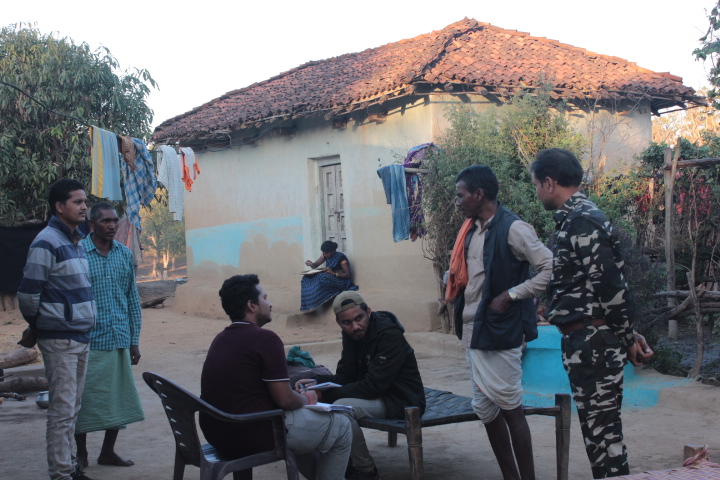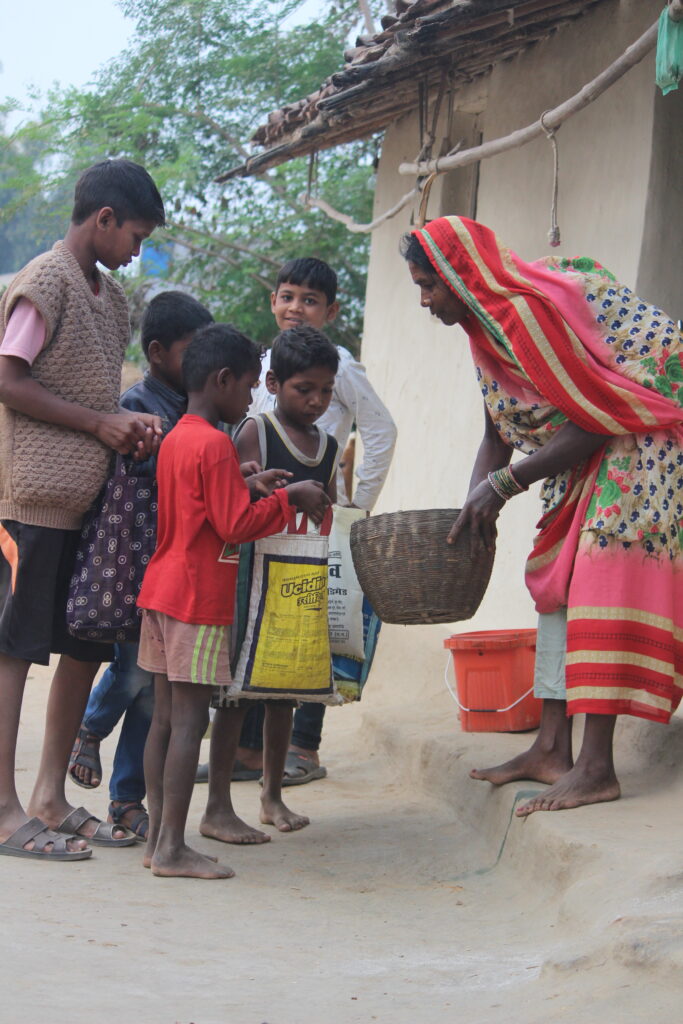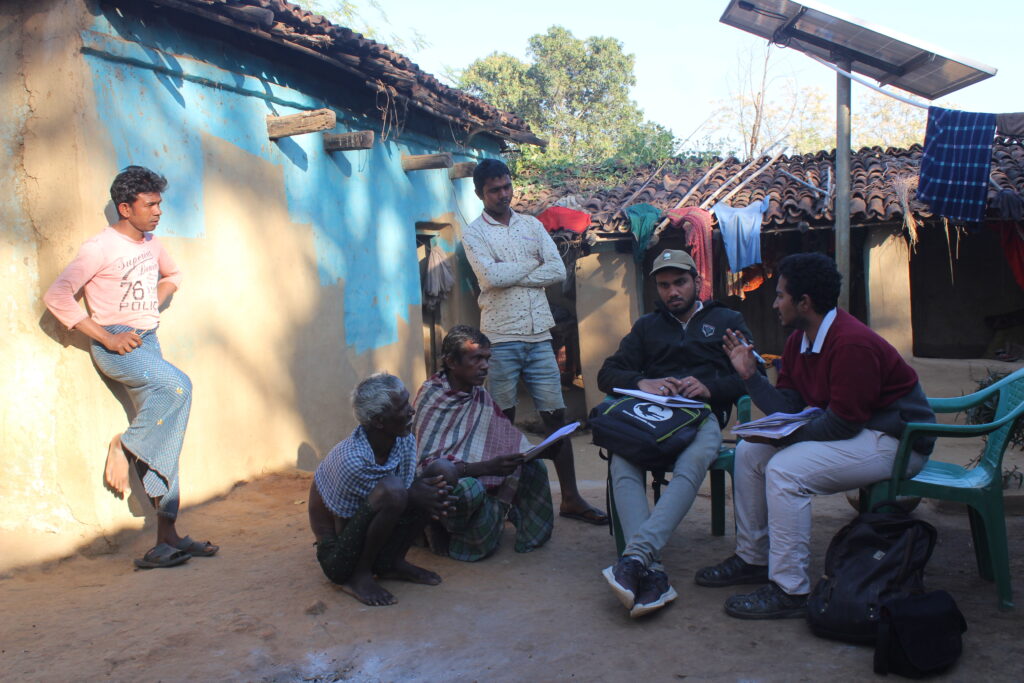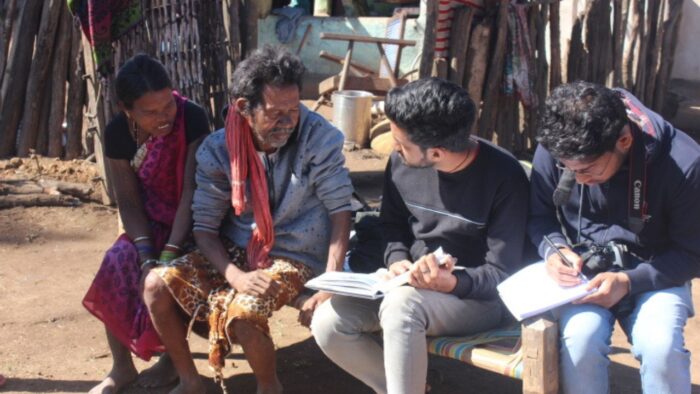Nishanth Gurav is currently researching ‘Ethnobotany of Gond and other Communities in the vicinity of selected sacred groves in Chhattisgarh, India’ at the Tropical Botany and Ethnobiology Lab (TRIBE) at the Faculty of Tropical Agrisciences (FTA), Czech University of Life Sciences Prague. This research was explored earlier in a short study funded by INDICA. The area of research, Nishanth says, can be called ‘Ethnobotany’, a relatively new discipline that studies the relationship between people and plants. Nishant is interested in the indigenous wisdom of tribal communities in Chhattisgarh on their local flora.
 Documentation from Vaidya
Documentation from Vaidya
What were your observations of your study on the Ethnic Food Practices of Gond Tribes?
According to the results, we find that the tribal communities still highly depend on many wild edible plants along with crops and have an exhaustive understanding on the behaviour of the plants and their uses.
How are courses that study food culture and communities structured to accurately represent local tastes and practices
I did my masters titled ‘Conservation futures’ at Transdisciplinary University Bangalore. This University is a new one and one of a kind in India. It looks at western perspectives but also equally represents the structure and philosophy of the Indic knowledge systems. Therefore, I was lucky to be trained at a university such as this. In general, when we look at courses designed for culture and communities, they are driven by western scientific ideologies which help to a certain extent but to rigorously work with local communities there is a need to decolonize scientific methodologies
 Cherchera Festival
Cherchera Festival
Ayurveda has very precise methods for growing, consumption of good. Is this being noted in international research
Ayurveda has been slowly recognised as a reliable source of information especially on food and health. Many research publications across the world are now testing ‘Ayurvedic cooking’ and with every publication there is scientific proof that ‘Ayurveda’ consist of vital information of food and health that can play an important role in global issues like nutrition, global warming and sustainability.
Are tribal and other native communities preserving food traditions more than urban people used to accessing food from all over the world even unseasonal at times?
Certainly, the tribals in my study area are isolated and far from urban world. They depend mostly on local foods grown from their farms or wild edible plants from the forest like tubers, flowers, fruits etc. The only external food they consume is the ‘hybrid rice’ provided free of cost by the state govt for the ‘nourishment’ of tribals. Tribals preserve food traditions through their festivals and cultural practices. There are specific plants and specific food dishes that need to be prepared during specific festivals and cultural ceremonies. Urban people on the other hand have access to different cuisines of the world and most often do not know where the food is coming from. But interestingly even in urban areas in India, especially ‘Hindus’ tend to preserve traditional food during festivals. If you look at different markets in urban India, during normal days it has exotic plants but during festivals they are flooded with traditional food plants. Therefore, traditions act as a resilience factor in both tribal and urban people but the tribals are closer to their traditions.

Interaction With Villagers
Any interesting anecdotes or examples you can share with us which you have come across in your work?
I have not just focussed on the ethnic food traditions but also on how this knowledge is transmitted from one generation to the other. Knowledge today is transferred through schools, colleges and research papers among other mediums. But the tribal community use ‘Oral traditions’ as one of the most important mediums through which knowledge is transferred. One such oral traditions are the songs of the tribals. I was curious to know if they have any songs on traditional foods and I found a very interesting song on ‘Mahua Lata’ – a bread (roti) prepared from the flowers of Madhuca indica.
The song goes like this – ‘Atkan matkan dahi chataka mahua lata, ban ke kata, thururu sawan aye, sawan ma karela phule, etc……
The song was sung by an old man during the field interviews and he told me that currently people rarely prepare the Mahua lata but the song keeps the memory of this tradition alive and is a funny song that slowly is also disappearing
Details of the Research:





